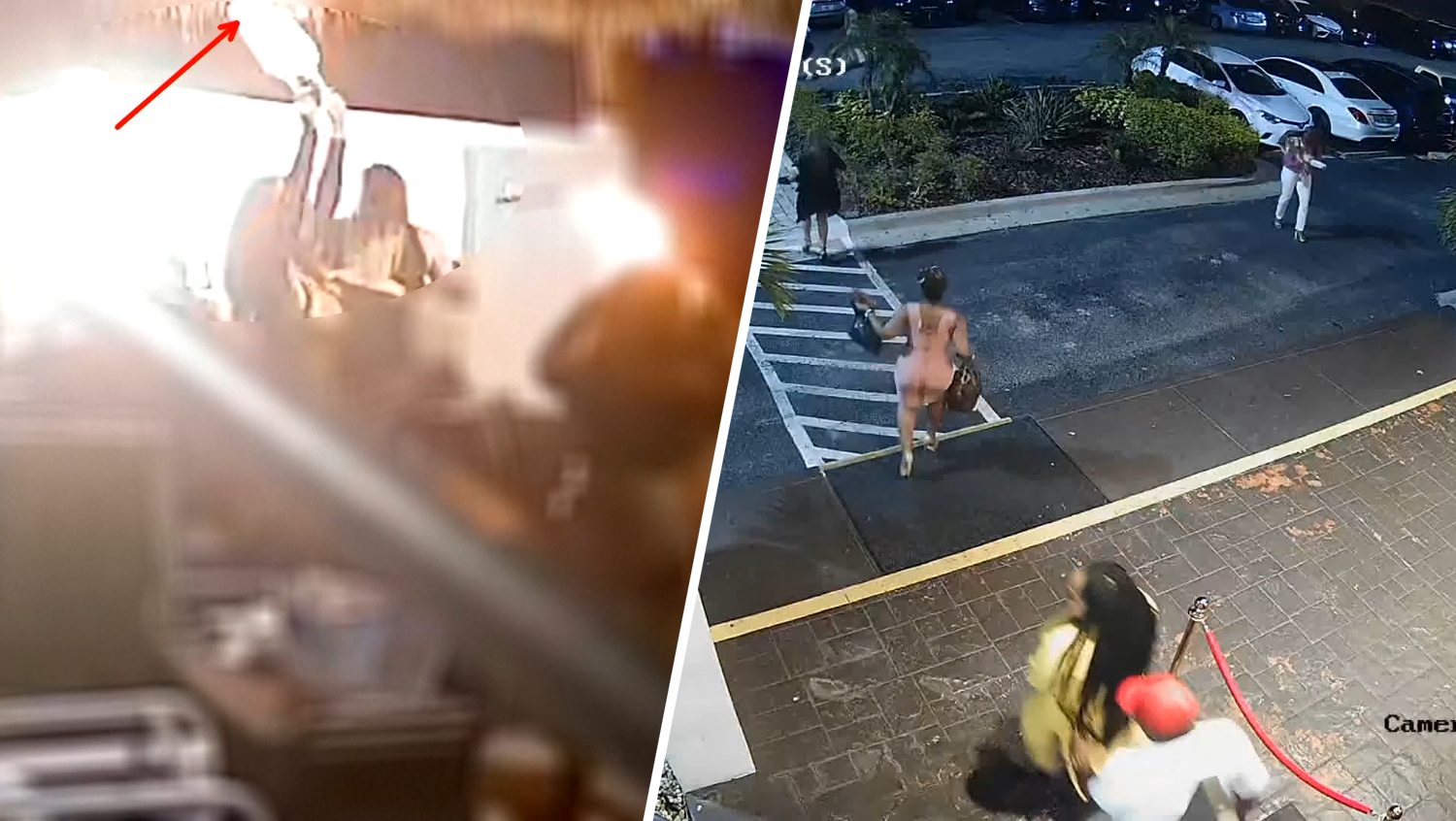Perhaps the most telling moment of the most symbol- and imagery-packed (and depressing) season yet of "Mad Men" came when a young Vietnam-bound soldier Don Draper met in Hawaii appears to him during a drug-induced hallucination at a Hollywood party.
"Dying," the soldier, missing his right arm, tells Don, "doesn't make you whole."
The haunting line effectively melded the driving theme of the series – a search for identity – with the dominant force of this lively sixth season: death. With the season finale set for Sunday on AMC, Don is in a pitched life-or-death battle for his soul.
If that sounds melodramatic, it’s only a reflection of the last dozen episodes, including last week’s installment in which Don bizarrely play acted the born-evil title character of “Rosemary’s Baby.” Death is everywhere in Don Draper’s 1968 – and not just because it’s the year of the Martin Luther King and Robert Kennedy assassinations, and the deadliest period of the Vietnam War for the U.S.
The season opened with the death – and rebirth – of Don’s doorman, Jonesy, who’s brought back to life by his neighbor, heart surgeon Arnold Rosen. The doctor wants to become the American Christiaan Barnard – endearing him to Don, who, at least on an emotional level, craves a new heart.
That doesn’t stop him, of course, from bedding Arnold’s wife, Sylvia, who gives Don a copy of “Dante’s Inferno” – his reading material for the beach during the jaunt to Hawaii, where he’s looking for inspiration to create an ad for a Sheraton hotel. Along the way, he gets cigarette lighters mixed up with the apparently doomed young solider, harkening back to Don’s life-altering exchange of dog tags in Korea with the real Don Draper, another victim of war.
Don’s hotel ad – a drawing of man’s clothes on left on the beach, with footprints leading to the water and the tagline: “Hawaii – the jumping off point” – horrifies his clients. They see the spot as an advertisement for suicide. For Don, the unintended death wish imagery represents paradise.
U.S. & World
News from around the country and around the globe
He later drunkenly demands of Jonesy: "What did you see when you died?"
"I guess there was a light," Jonesy replies. "Was it like hot, tropical sunshine?” Don asks.
Don, drinking heavier than ever this season, shows up blitzed for the funeral for the mother of his business partner, Roger Sterling, and pukes. Flip Roger jokes about his mother’s demise, but later breaks down inconsolably when learning his shoeshine man has died. It’s Roger who later greets Don back to the land of the living after his Hollywood hallucination ends with him facedown in a swimming pool, following an apparent out-of-body, near-death experience.
After his revival, Don appeared scared, a once unfamiliar look that’s cropped up a few times this season – including during a turbulence-buffeted plane journey piloted by his co-worker Ted Chaough. But we’ve never seen Don as frightened as when his daughter Sally catches him in the act with Sylvia, who was giving him a final thank-you romp for saving her son from the draft.
The last vestiges of Sally’s fragile innocence died that moment. She was irrevocably betrayed – the same way, as we saw in flashbacks, Don was betrayed as a boy raised in a brothel when he was still poor Dick Whitman.
Reinvention comes as at a price, as evidenced by the most intriguing new character of the season, office-climber Bob Benson – a Draper-like shape-shifter who listens to his power-of-positive-thinking records, always one misstep away from being found out. Petulant junior partner Pete Campbell discovers Benson’s secret. But instead of revealing Benson as a fraud, he turns him into an ally – as if this will somehow teach Pete how his frequent nemesis Draper thinks.
Meanwhile, Peggy Olson, Don’s protégé in advertising and reinvention, gets into the middle of a mentor tug of war with him and Ted. In the strangest, most meme-friendly moment of the season, Don cries like an infant during a run-through of Peggy’s “Rosemary’s Baby”-themed commercial for children’s aspirin. Don saves the expensive spot – but at the cost of devastating Ted by invoking the memory of a beloved, recently deceased colleague to elicit sympathy from the client.
Peggy who has a crush on Ted, essentially tells Don he’s a killer of the spirit and creativity: “You’re a monster” – perhaps not unlike the devil spawn of the film that inspired her ad.
“Rosemary’s Baby,” was directed by Roman Polanski, who was married to actress Sharon Tate, the most famous victim of the 1969 Manson Family murders. An episode this season in which Don’s young actress wife Megan is seen in a shirt once worn by Tate spurred Internet-driven speculation that she won’t survive the season. “Mad Men” creator Matthew Weiner made the rare move of telling the Los Angeles Times that Megan is safe – at least for now.
Any fireworks in the finale likely will be of the emotional variety.
Last season ended with woman in bar asking Don, “Are you alone?” – a come-on that served as a larger, stage-setting existential question. At the end of the most recent episode, after Peggy lambasts him, Don is left by himself to curl up on his office sofa, in a near fetal position. Don Draper finally realizes he’s lost himself, that he can never be whole, which is a slow death in itself.
Check out a preview of the season finale below:
Hester is founding director of the award-winning, multi-media NYCity News Service at the City University of New York Graduate School of Journalism. He is the former City Editor of the New York Daily News, where he started as a reporter in 1992. Follow him on Twitter.



